Introduction
Beibei small pumpkins, also known as Cucurbita moschata ‘Beibei,’ are a petite, vibrant cultivar of winter squash celebrated for their sweet, nutty flavor and creamy texture. Native to Japan and China, these diminutive gourds have gained global popularity not only for their culinary versatility but also for their impressive nutritional profile. Weighing between 200 to 500 grams, their compact size belies a wealth of vitamins, minerals, and bioactive compounds that support overall health. This article delves into the nutritional composition of Beibei small pumpkins, exploring how their unique blend of macronutrients, micronutrients, and antioxidants contributes to disease prevention, metabolic health, and holistic well-being.
Macronutrient Profile: Calories, Carbohydrates, and Fiber
Beibei small pumpkins are a low-calorie food, making them an ideal choice for weight-conscious diets. A 100-gram serving contains approximately 34 calories, with 90% of these calories derived from carbohydrates. However, their carbohydrate content is predominantly complex, consisting of dietary fiber and slow-digesting starches that stabilize blood sugar levels. This glycemic index (GI) advantage sets Beibei pumpkins apart from higher-GI starchy vegetables like potatoes, rendering them suitable for individuals with diabetes or insulin resistance.
The fiber content is particularly noteworthy. A single serving provides 2.8 grams of fiber, equivalent to 11% of the recommended daily intake (RDI) for adults. This fiber is a mix of soluble and insoluble types, with soluble fiber (pectin) promoting gut health by nourishing beneficial bacteria and insoluble fiber aiding regularity. Studies suggest that high-fiber diets reduce the risk of colorectal cancer, heart disease, and metabolic syndrome—conditions linked to poor dietary habits.
Vitamins: A Powerhouse of Essential Micronutrients
Beibei small pumpkins are a vitamin-rich food, offering substantial amounts of vitamins A, C, and E, as well as B-complex vitamins.
-
Vitamin A: A 100-gram serving delivers 7,384 IU (international units) of vitamin A, primarily as beta-carotene, a provitamin converted into retinol in the body. This exceeds 147% of the RDI, making Beibei pumpkins one of the richest dietary sources of this nutrient. Vitamin A is critical for immune function, eye health, and cellular differentiation. Its antioxidant properties also combat oxidative stress, reducing the risk of chronic diseases like macular degeneration and certain cancers.
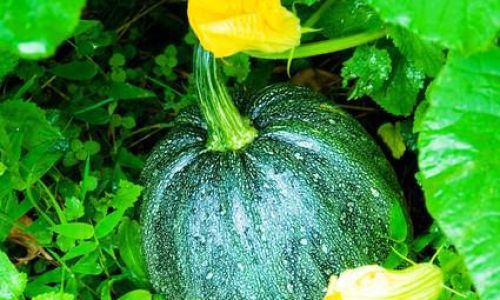
-
Vitamin C: With 9 milligrams per serving (15% of the RDI), Beibei pumpkins contribute to collagen synthesis, wound healing, and iron absorption. Vitamin C also bolsters the immune system by enhancing the activity of white blood cells and neutralizing free radicals.
-
Vitamin E: Though present in smaller quantities (1.1 mg per serving), this fat-soluble vitamin acts as a potent antioxidant, protecting cell membranes from lipid peroxidation. It also supports skin health and may reduce inflammation associated with conditions like arthritis.
-
B Vitamins: Beibei pumpkins provide thiamine (B1), riboflavin (B2), niacin (B3), and folate (B9). These vitamins are essential for energy metabolism, nervous system function, and DNA synthesis. Notably, folate is crucial during pregnancy to prevent neural tube defects in fetuses.
Minerals: Key Players in Bone and Metabolic Health
The mineral profile of Beibei small pumpkins complements their vitamin content, offering a spectrum of electrolytes and trace elements.
-
Potassium: A 100-gram serving contains 340 mg of potassium, approximately 9% of the RDI. Potassium regulates blood pressure by counteracting sodium’s effects and supports muscle contractions and nerve signaling. Diets rich in potassium are linked to a lower risk of stroke and cardiovascular disease.
-
Magnesium: With 12 mg per serving, Beibei pumpkins contribute to magnesium intake, a mineral involved in over 300 enzymatic reactions, including protein synthesis, muscle function, and blood glucose control. Magnesium deficiency is associated with insulin resistance and hypertension.
-
Iron and Zinc: While not exceptionally high in these minerals, Beibei pumpkins provide 0.7 mg of iron and 0.3 mg of zinc per serving. Iron is vital for oxygen transport and energy production, while zinc supports immune function and wound healing.
Antioxidants and Phytonutrients: Guardians Against Chronic Disease
Beyond conventional vitamins and minerals, Beibei small pumpkins boast an array of antioxidants and phytonutrients that mitigate oxidative stress and inflammation.
-
Carotenoids: In addition to beta-carotene, Beibei pumpkins contain alpha-carotene, lutein, and zeaxanthin. Lutein and zeaxanthin accumulate in the retina, filtering harmful blue light and reducing the risk of age-related macular degeneration (AMD).
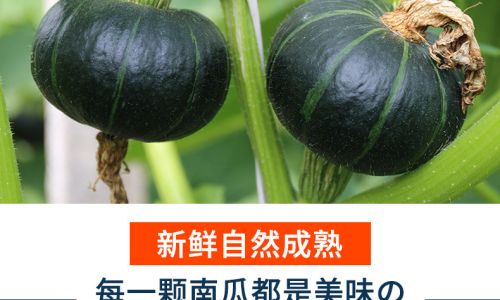
-
Polyphenols: These compounds, including flavonoids and phenolic acids, exhibit anti-inflammatory and anticancer properties. They modulate gene expression to inhibit tumor growth and enhance the body’s antioxidant defenses.
-
Cucurbitacins: Unique to squash family plants, cucurbitacins have been studied for their potential to induce apoptosis (cell death) in cancer cells. While research is ongoing, early studies suggest their role in chemoprevention.
Health Benefits Backed by Science
The synergistic effects of Beibei pumpkins’ nutrients translate into measurable health advantages:
-
Cardiovascular Support: The potassium-to-sodium ratio (approximately 3:1) aids in blood pressure regulation, while fiber reduces LDL (bad) cholesterol levels. A 2020 study in the Journal of the American Heart Association linked higher dietary fiber intake to a 24% lower risk of coronary heart disease.
-
Diabetes Management: Low GI and high fiber content slow glucose absorption, preventing blood sugar spikes. A 2018 clinical trial found that incorporating pumpkin into diabetic diets improved insulin sensitivity and fasting blood glucose levels.
-
Digestive Health: Fiber promotes gut microbiota diversity, with soluble fiber acting as a prebiotic. A 2021 review in Nutrients highlighted pumpkin’s role in alleviating constipation and reducing the risk of diverticulitis.
-
Anti-Inflammatory Effects: Carotenoids and polyphenols downregulate pro-inflammatory cytokines, potentially easing symptoms in conditions like rheumatoid arthritis and inflammatory bowel disease (IBD).
-
Skin and Eye Health: Vitamin A and antioxidants protect against UV damage and oxidative stress, slowing skin aging and preserving vision.
Culinary Applications and Bioavailability
Beibei small pumpkins’ culinary versatility enhances their nutritional appeal. They can be roasted, steamed, pureed, or added to soups, stews, and baked goods. Cooking methods influence nutrient retention:
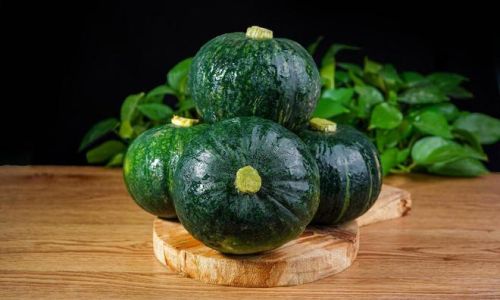
- Roasting: Enhances beta-carotene bioavailability by breaking down cell walls, making nutrients more accessible.
- Steaming: Preserves water-soluble vitamins like vitamin C better than boiling, which leaches nutrients into cooking water.
- Pureeing: Allows easy incorporation into smoothies, sauces, or baby food, ensuring nutrient density without added fats or sugars.
Pairing Beibei pumpkins with healthy fats (e.g., olive oil, avocado) further boosts carotenoid absorption, as these compounds are fat-soluble.
Comparative Analysis: Beibei vs. Regular Pumpkins
While all pumpkins share nutritional similarities, Beibei varieties offer distinct advantages:
| Nutrient | Beibei Pumpkin (100g) | Regular Pumpkin (100g) |
|---|---|---|
| Calories | 34 | 26 |
| Fiber | 8g | 5g |
| Vitamin A (IU) | 7,384 | 4,26 |
| Potassium (mg) | 340 | 340 |
| Beta-Carotene (mg) | 4,26 | 2,76 |
Beibei pumpkins excel in fiber and vitamin A content, with a creamier texture and sweeter taste that reduces the need for added sugars in recipes.
Potential Concerns and Allergies
While Beibei pumpkins are generally safe, rare allergies to squash family plants (Cucurbitaceae) may occur. Symptoms include oral allergy syndrome (itching, swelling) or, in severe cases, anaphylaxis. Cross-reactivity with pollen allergies (e.g., ragweed) is possible. Additionally, excessive beta-carotene intake can cause carotenemia, a harmless yellowing of the skin, though this requires consuming large quantities daily.
Sustainability and Environmental Impact
Beibei pumpkins are relatively sustainable crops, requiring minimal water and pesticides compared to other produce. Their hard shells also reduce food waste, as they can be stored for up to three months in cool, dry conditions. However, monoculture farming practices in some regions may threaten biodiversity, emphasizing the need for ethical sourcing.
Conclusion: A Nutritional Gem for Modern Diets
Beibei small pumpkins transcend their role as a seasonal decorative item, emerging as a nutritional powerhouse with benefits spanning cardiovascular health, diabetes management, and anti-inflammatory protection. Their rich vitamin A, fiber, and antioxidant content, combined with culinary adaptability, make them a valuable addition to balanced diets. As global interest in plant-based nutrition grows, Beibei pumpkins offer a sweet, nutrient-dense solution to enhance health while satisfying culinary creativity. Whether roasted, pureed, or incorporated into savory dishes, these petite gourds prove that size is no indicator of nutritional might.
Final Thoughts
Incorporating Beibei small pumpkins into weekly meal plans is a simple yet impactful step toward optimizing health. Their low calorie density, high satiety factor, and disease-fighting compounds position them as a superfood worthy of regular rotation. As research continues to unveil the intricate roles of phytonutrients, one thing remains clear: Beibei pumpkins are not just a fall favorite—they are a year-round ally in the pursuit of wellness.
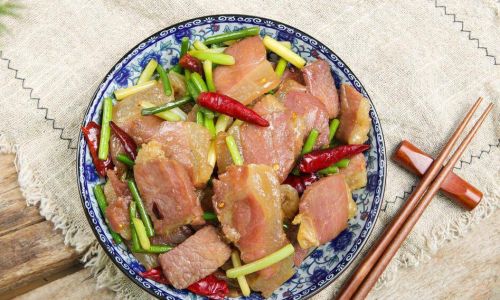
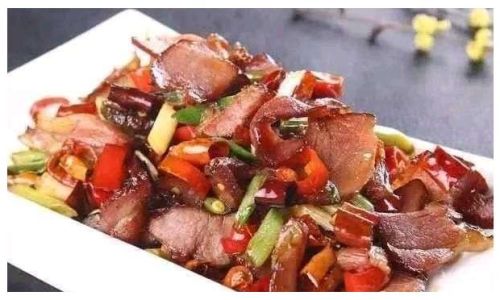
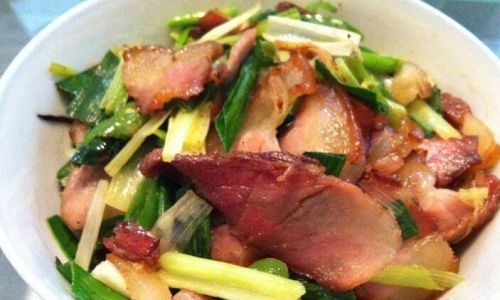



0 comments